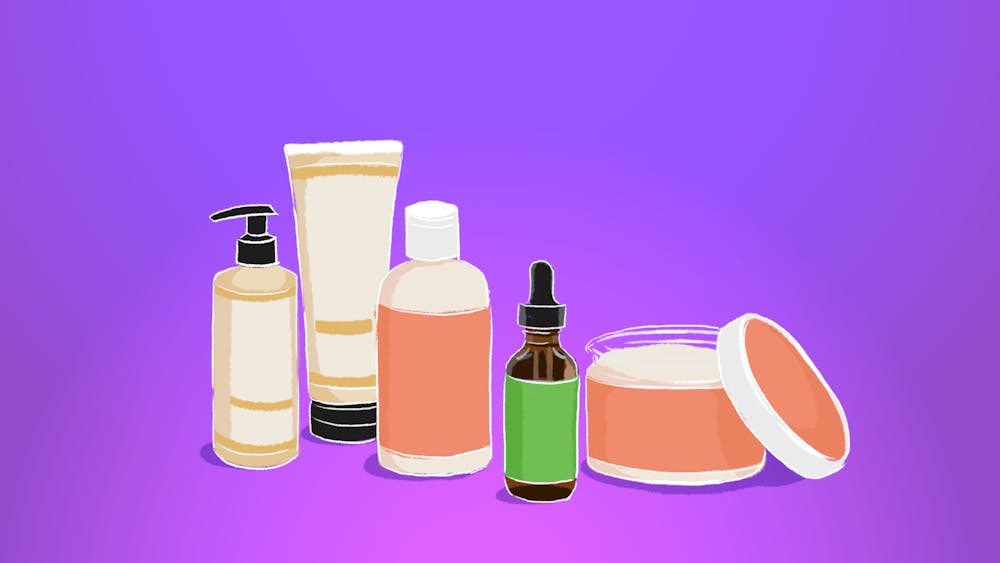About two months ago, controversy over Mielle Organics' Rosemary Mint Scalp Oil, a Black–owned brand of hair oil that caters to coily curl patterns, sprouted all over TikTok. Debates raged on over who can or can not use products made by Black–owned businesses and what it means when white influencers promote products that aren't designed for them.
The argument took over the internet when white influencer Alix Earle uploaded a video recommending several products, including the Mielle oil, to her followers. Earle became famous on TikTok after posting about her dreamlike college experience at the University of Miami. Her TikTok story time videos intrigued many, allowing viewers to take a glimpse into her luxurious life filled with parties and trips. In her video promoting the Mielle oil, Earle says, “[I've] only been using this for like a little over a month, and I’ve already seen tremendous hair growth.”
Due to Earle’s popularity, the Mielle oil began to sell out of local stores like Target and Walmart. Exasperated Black consumers posted TikToks joking about how they "can’t have nothing."
It's important to know that many hair oils are geared towards coily hair types, as their maintenance can be arduous. Curlier hair textures make it difficult for the scalp’s natural oils to moisturize the hair shaft, thus making natural hair drier than straight hair. These oils are a must–have for textured hair—they provide the appropriate nutrients that ensure growth and protection from breakage.
Not only are there few Black–owned products carefully made by Black hands, but they are now being taken by white women’s curiosity. In every hair aisle of any store, there are far fewer products geared towards Black women than there are for non–Black women. Although the oil’s newfound popularity seems like a win for Mielle Organics, this issue has consequences for the Black and brown customer that Mielle’s products are targeted to.
Similarly, in 2021, when Dabur’s Amla oil, an essential oil used by many South Asians for hair growth, went viral on TikTok, many South Asian creators shared their frustration at white people who claimed to discover the product, and then disparaged it when it didn’t work for them. Srividhya, an Indian TikToker, posted a video saying, “[I’m] confused watching all the white girlies first use Amla oil and complain about it smelling bad and dying their blond hair, and now they are using Mielle oil, diluting it, and literally using it wrong, because it isn’t meant for their hair type.”
Yes, we love that companies like Mielle Organics, Dabur, and more are able to work and build up their businesses, but because of this abrupt increase in sales, women of color fear that these brands are willing to sacrifice their original customers in order to appeal to a larger market.
This isn’t an unfounded concern. Following increased popularity from white audiences in the past, companies have changed their formulas to fit all hair types. When formerly Black–owned brand Shea Moisture uploaded an advertisement comparing the hair–related issues white women face to those of Black women to appeal to a larger market and showcase their new formulas, Black women shared their disappointment in how the brand had seemingly discarded them.
Although the owner of Mielle Organics has promised not to change the formula following their acquisition by Procter & Gamble, Black women’s concerns are still valid. In the words of Uju Anya, a professor of applied linguistics at Carnegie Mellon University, “[Black women are] extremely sensitive to hair, because of the history of discrimination, disenfranchisement, and abuse we’ve suffered because of [our] hair.”
We have seen time and time again how appealing to a white mass market can leave Black women behind. Influencers on all social platforms play a significant role in promoting businesses; in the case that these influencers review products that aren't intended for them, even if their reviews are positive, there is a strong chance that an influx in popularity can actually cause a net damage.
The problem doesn't lie uniquely with Alix Earle, but more so with the fact that Black women—as well as other women of color—face immense challenges in finding products that work for them. When white influencers co–opt beauty trends and products that originate in the Black community, it can do far more harm than good.

